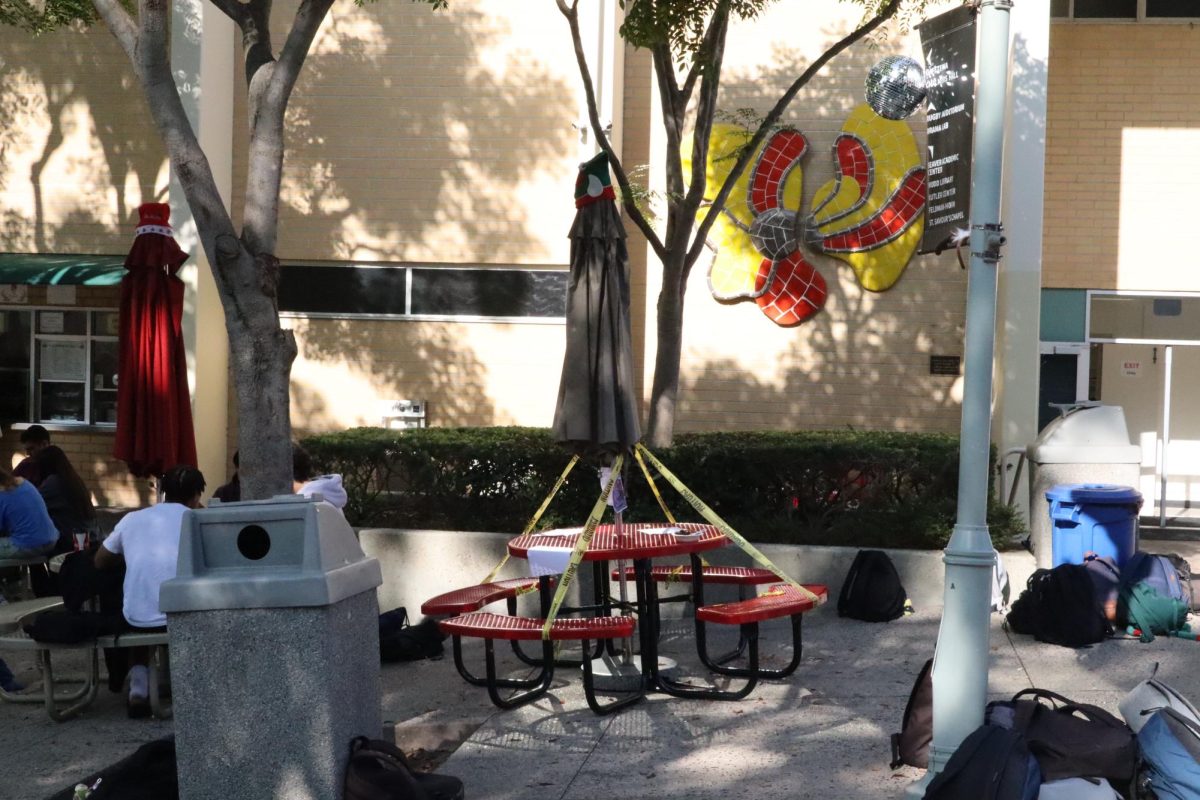Commitment Issues: Committed athletes discuss the pressures they face in the years leading up to college.
October 20, 2021
Duke University offered Grace Thrower ’23 a spot on their volleyball team, she said her work had just begun. . Thrower said that although her peers expect her to experience less academic pressure, the process athletic commits undergo is not necessarily less stressful .
“People come up to me and say, ‘It must be so easy knowing where you’re going to go [to college],'” Thrower said, “But it’s really not. [In fact,] it’s anything but that.”
Mac Bailey ’23, who is not a committed athlete, said he believes committed athletes experience less stress than students who are not committed athletes.
“There are times when I wish I was a committed athlete due to the security of knowing where you will be attending college,” Bailey said.“Having a strong sense of where you will be attending school [would alleviate] stress in the application process.”
Although Bailey said he imagines the results of the commitment process are a relief to student-athletes, Thrower said the reality is more complex, and she said she experienced mixed emotions after committing to play volleyball at Duke.
“It was a moment of relief for a few minutes, but since then the pressure [to succeed] has gone up,” Thrower said.
Thrower said for a college coach, inviting a player to their program is a long-term process.
“It’s two years in advance. They expect you’re going to keep developing and getting better,” Thrower said . “It’s never really done until you actually [attend the college] .”
Like Thower, midfielder Giselle Thompson ’24 said her experience after committing to Stanford University to play soccer has been stressful as well.
“In seventh grade, [coaches] started reaching out [to me] more,” Thompson said. “I think it kind of put more pressure on me and my sister, [Stanford commit Alyssa Thompson ’23], to always play our best and to be the best on the field.”
Thompson said she holds herself to high standards as an athlete.
“I feel like I always have to be at my best,” Thompson said. “If I’m not, then it not only disappoints my family but also me. If I’m not succeeding, I’m kind of letting myself down.”
Pitcher Duncan Marsten ’24, who committed to Stanford University to play baseball, said he consistently feels pressure to perform well academically in order to maintain his commitment plans.
“That’s the whole thing with the pressure of academics,” Marsten said. “Especially here, you have to [get] everything done or else you’re gonna do summer school and lose your [commitment offers]. [That is] always a subconscious thought.”
Thompson said she believes academics are just as important as athletics.
“I think academic success is vital,” Thompson said. “[Once] my soccer career is over, what am I supposed to do? I feel like my academics will definitely help with my future.”
Athletic Director Matt LaCour said that having a mindsetthat does not solely prioritize sports is extremely beneficial to a young athlete. LaCour said he has witnessed firsthand the uncertainty inherent in the recruitment process.
“The reality is, nothing is secure in a college commitment,” LaCour said. “You can be the most elite athlete at our school and make a commitment your freshman year to go and play at whatever university you want, but it doesn’t mean a thing until you’ve put that name on a piece of paper and signed it.”
LaCour said the recruitment mentality of college coaches can strongly impact student commits without impacting the college coaches in the same way.
“These college coaches are doing their job, and they are paid to win,” LaCour said. “If you commit as a freshman, and by the end of your junior year you don’t factor into that formula of them winning more games at the collegiate level, they can pull that scholarship offer, they can walk away, no harm no foul on their side.”
Ashley Waco ’18, a current senior at the University of Pennsylvania who originally committed to play softball there, said she experienced a feeling of insecurity throughout her recruitment process comparable to that of a normal college applicant.
“You see everyone committing around you, and [once] those spots are taken, they’re gone [for good],” Waco said. “You don’t really have control over a lot of it, whether a coach happens to see you on the field or happens to be at your tournament. I think my recruiting process was stressful compared to [the non-recruitment route of] being able to choose where you apply and knowing that these admissions officers are going to see your application.”
Waco said that even after the University of Pennsylvania offered her a place on their softball team at the beginning of her junior year of high school, she still felt pressure to maintain a high level of performance.
“The coaches come out once a year to see you,” Waco said. “You have to perform or else you’re going to have to have a tough conversation [with them].”
Waco said the difficulties of being a student-athlete continued even while attending the University of Pennsylvania. She explained that upon arrival, student-athletes were not given special support from the school administration and was treated just like any one of her classmates.
“At the Ivy League schools you’re expected to be a normal student,” Waco said. “We get no early registration, even though we are working around a practice schedule. Teachers will not make exceptions for missed absences, even if you have to travel for a game. When we’re accepted, we’re expected to maintain the same things [other students] do and if we don’t, we have the consequences of not being able to play.”
Waco said the stress of maintaining academic excellence was heightened by the attitudes of her peers who had not been accepted on athletic merit.
“There’s a ton of people that do look down on us because we got in using athletics,” she said.
Thompson said her peers’ focus on her athletic abilities often detracts from their ability to perceive other aspects of her personality.
“I feel like there’s always a big spotlight on us,” Thompson said. “It’s kind of hard to get away from it. Sometimes, I don’t really want to tell people [I’m committed] at all, I just want people to see me for me.”





























